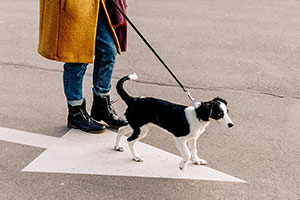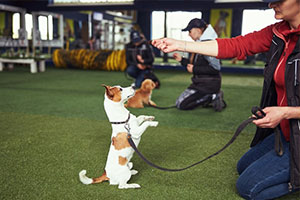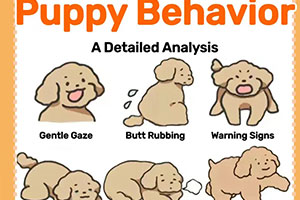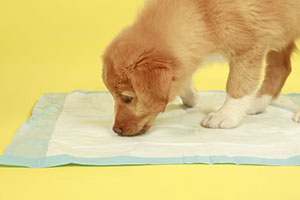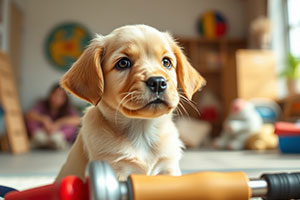Socializing Your Puppy
Dogs Training | by
All puppies need to meet as many other dogs and as many people as possible. This is the essence of socialization, and when done effectively most of the behavior problems that may occur later will be avoided.
From the day you acquire him, your new puppy should start to meet other people. The puppy must not be overwhelmed but, within reason, the more people he meets the better. The visitors should be asked to hold the puppy, handling and cuddling him gently, so that he learns that people are friends. However, until the puppy has had his vaccinations some caution is necessary to avoid second-hand contact with other owners' dogs. Ask dog owners to delay their visit until your puppy has had his second round of injections.
Apart from other dogs in the household, to which the puppy should be introduced at the earliest possible moment, meeting dogs must be delayed until the new puppy has had his two sets of injections and the "all clear" from the veterinarian, at about twelve weeks old.
In the United States, one of the most useful, as well as entertaining, developments in puppy training in recent years has been the creation of puppy parties. These are exactly what they sound like. Once or twice a week a group of puppy owners with their puppies meet for an hour or so in the village hall or somewhere similar. Puppies from twelve weeks of age up to six or seven months, and of all sizes, are allowed to play with each other with only the minimum restraint from their owners. The smaller ones are rarely overwhelmed by the larger, and all learn that their fellow canines can be approached without fear. It is an object lesson for their owners.
The puppy party has revolutionized dog training in the United States. Most puppy groups have experienced trainers in charge, and the transition from pure play into early obedience training can be seamless. Lead training is nearly always part of it, perhaps simply walking at heel without tugging, and the foundations to more advanced work may be laid.
